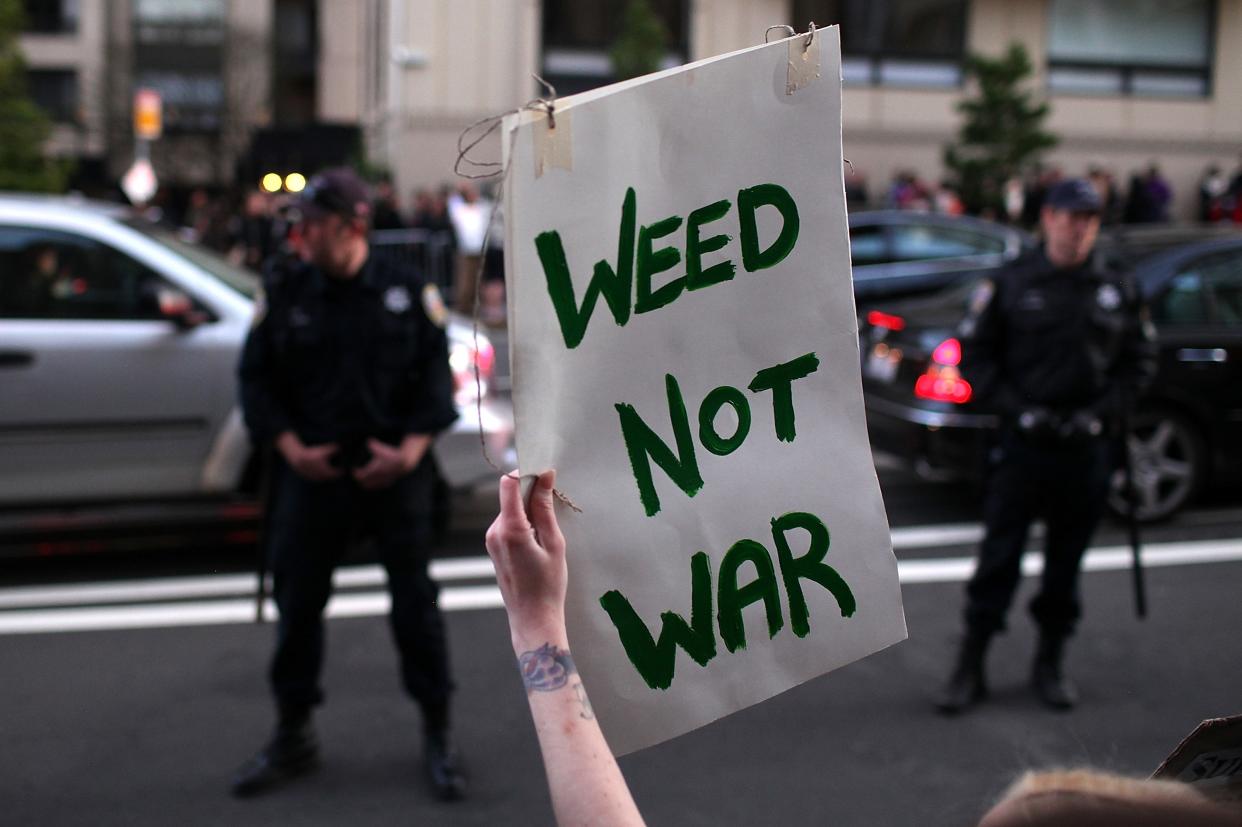San Francisco Just Gave Jeff Sessions' War on Drugs the Middle Finger

In the wake of California's historic move to legalize recreational marijuana, the city of San Francisco is taking an unprecedented step in criminal justice reform: District Attorney George Gascón announced Wednesday that the city would be retroactively applying the new law to clear thousands of convictions going back to 1975.
Other states that have legalized marijuana allow people with convictions to individually petition to have their convictions reduced or expunged, but the process can be costly and time-consuming. According to the San Francisco Chronicle, nearly 5000 Californians have already petitioned courts just since legalization passed in November. What makes San Francisco's move so unusual is Gascón's decision to dedicate city money and resources to proactively expunge decades of records, rather than passively putting the onus on people who likely have limited resources.
It's now widely accepted that these drug laws are little more than a pretext to criminalize and over-police black communities, and those convictions have lifelong consequences, affecting people's ability to get a job, apply for loans, and get housing. Ironically, they even prevent people from selling marijuana once it's legal. BuzzFeed reported in 2016, that people are often barred from working in the legal marijuana industry if they have marijuana-related convictions, and as a result the people profitting off of legalization are almost entirely white. As Michelle Alexander, author of The New Jim Crow, has said, "After 40 years of impoverished black men getting prison time for selling weed, white men are planning to get rich doing the same things."
Of course, this move isn't likely to sit well with Jeff Session, who's fighting to push the U.S. back into the failed War on Drugs. Sessions has no respect for states' rights or legal precedent when they interfere with him criminalizing minorities, but the Department of Justice doesn't have any ability to stop state-level officials from expunging state-level crimes. Still, he often struggles with understanding exactly how courts work, so there's no telling how he might try to meddle.

